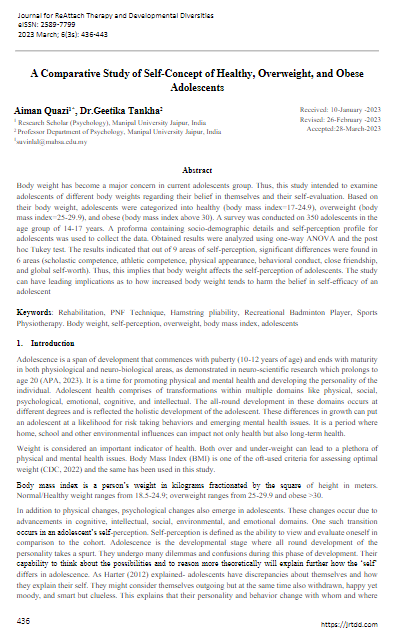A Comparative Study of Self-Concept of Healthy, Overweight, and Obese Adolescents
Main Article Content
Abstract
Body weight has become a major concern in current adolescents group. Thus, this study intended to examine adolescents of different body weights regarding their belief in themselves and their self-evaluation. Based on their body weight, adolescents were categorized into healthy (body mass index=17-24.9), overweight (body mass index=25-29.9), and obese (body mass index above 30). A survey was conducted on 350 adolescents in the age group of 14-17 years. A proforma containing socio-demographic details and self-perception profile for adolescents was used to collect the data. Obtained results were analyzed using one-way ANOVA and the post hoc Tukey test. The results indicated that out of 9 areas of self-perception, significant differences were found in 6 areas (scholastic competence, athletic competence, physical appearance, behavioral conduct, close friendship, and global self-worth). Thus, this implies that body weight affects the self-perception of adolescents. The study can have leading implications as to how increased body weight tends to harm the belief in self-efficacy of an adolescent

